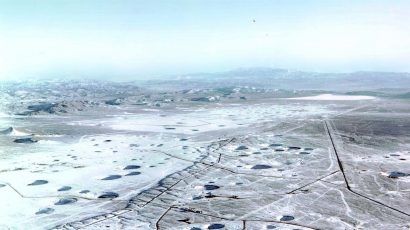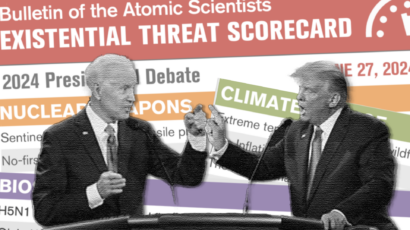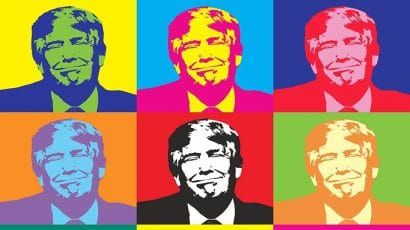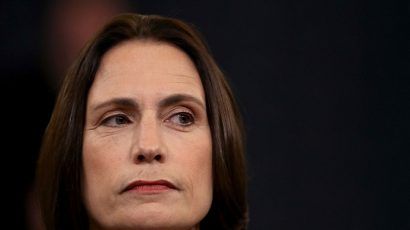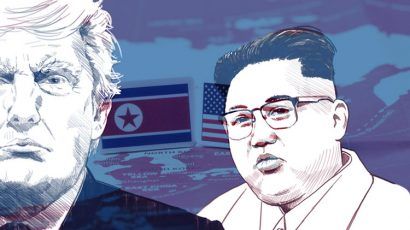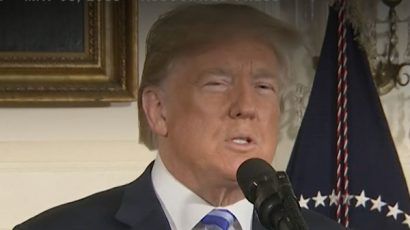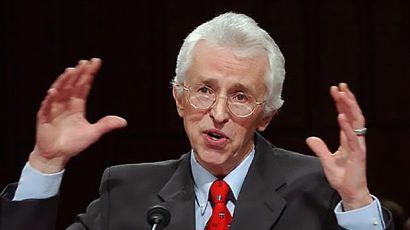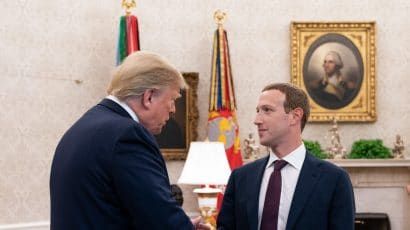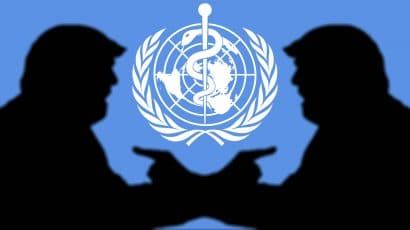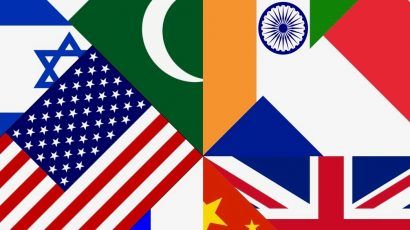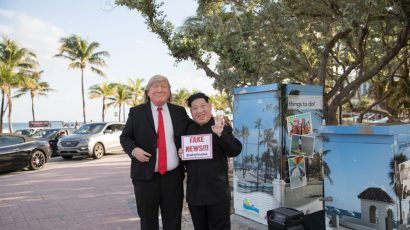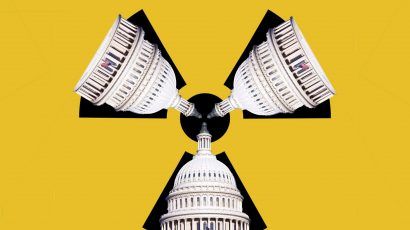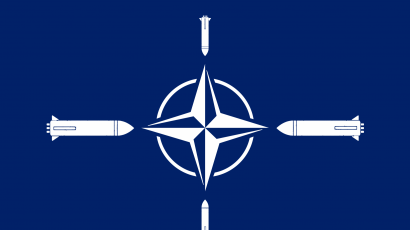Search results for trump
Sad! A brief history of White House propaganda from Teddy Roosevelt to Donald Trump
From paying for people to speak in theaters as movie reels were changed to producing campaign-style ads about the coronavirus pandemic, successive White House's have produced a troubling amount of propaganda, all on the taxpayer's dime.
Why a US nuclear test in Nevada would be bad for the world—and Trump’s reelection
The chair of the Bulletin's Science and Security Board discusses the international and domestic consequences of a US nuclear test.
Is there any debate? This is the existential threat scorecard you need to rate the Biden and Trump matchup
Tonight Joe Biden and Donald Trump will face off for the first time since their last presidential election debate on October 22, 2020. How will the candidates do this time on the big issues threatening humanity?
Should I stay or should I go? A ‘Chernobyl-like defect’ in our election system might give Trump a choice
A legal scholar explains how Trump could lose and stick around anyway, through a combination of disinformation, COVID, political division, and the resulting "catastrophic breakdown" of our presidential election system.
Fiona Hill speaks to impeachment committee. Here’s what she previously said about Putin in the Bulletin.
Trump’s Russia expert wrote a 500-page book analyzing Vladimir Putin—with juicy highlights in an 8-page essay for the Bulletin in 2016
Arms control on the brink
Trump’s move to withdraw from the INF is an unnecessary and self-defeating own-goal (to use the soccer term) that together with the uncertain future of the 2010 New Strategic Arms Reduction Treaty (New START) has brought the US-Russia arms control framework to the brink of collapse.
Charisma in the nuclear age
Trump’s charismatic and chaotic brand of leadership may have helped jump-start talks about North Korea’s nuclear program, but it is inherently dangerous.
The Iran deal is a done deal
Trump’s unilateral decision about the Iran deal has put the EU in a bind, from which it will likely prove hard to escape.
A predictable but dangerous Iran announcement
Trump withdraws from the Iranian nuclear deal, risking more instability and nuclear proliferation.
Meet me in Pyongyang: an interview with Siegfried Hecker
Trump and Kim Jong-un have agreed to meet. A top US expert on North Korean nuclear weapons talks about how this came about and what it means.
Eyes in the sky: Cutting NASA Earth observations would be a costly mistake
Trump’s team is calling for ending NASA’s earth science research. What will this mean?
Rebuilding climate regulation: What Biden probably will (and will not) accomplish
The Trump administration spent four years dismantling Obama-era policies on climate change. Here’s how President-elect Biden can clean up the mess.
The pandemic, protests, and election are putting social media content policies under a microscope
The Trump/Twitter feud exacerbates a long-simmering conflict about the responsibility and legal authority that social media platforms and governments have to regulate hate speech and misinformation on the internet.
Pandemic failure or convenient scapegoat: How did WHO get here?
Donald Trump wants to break up with WHO over its alleged bungling of the pandemic response. But since their origins 150 years ago, international health regimes have been a reflection of the nations that designed them. So when the United States accuses WHO, who is really to blame?
Ventilators for coronavirus patients: Why automakers aren’t the right source
President Trump invoked the Defense Production Act to compel ventilator production by General Motors and appointed his trade adviser Peter Navarro to coordinate federal policy under the act.
Trump has said he is now a wartime president, so that history has appeal. But the expectation is misplaced. The analogy has serious limits that could misguide policy.
A not so modest proposal: Maintain the INF, extend New START, and involve new actors in arms control
President Trump is now exploring the possibility of addressing the INF issue by reframing how the practice of arms control is conducted. Instead of focusing on bilateral agreements between the United States and the Russian Federation (the two countries with the largest nuclear arsenals) the President believes that we should involve more actors. Actors like China who also have deployed missiles with INF range.
Gaseous molecules of freedom
The Trump administration loves fossil fuels but has apparently decided that they need some rebranding.
A congressional effort to coordinate US nuclear nonproliferation efforts. From a Republican.
The Trump administration’s 2018 Nuclear Posture review was so short on nonproliferation that a Republican congressman is proposing a new government body to address it.
Europeans to the rescue?
Donald Trump’s announcement that the United States will withdraw from the INF treaty puts Europeans in a difficult spot. What should they do now?


